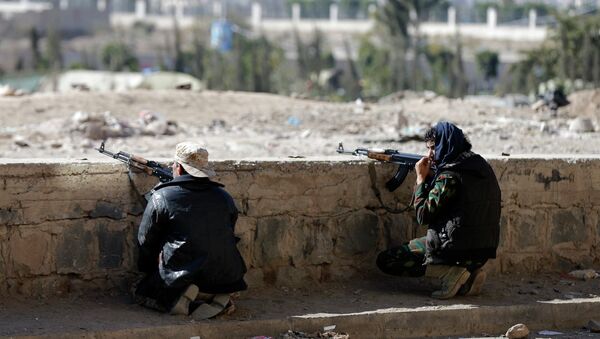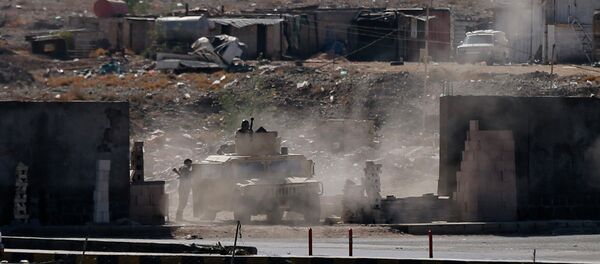Yemeni information minister made a statement amid ongoing battles between the country's goverment forces and Shiite Houthi rebels.
"This is a step toward a coup and it is targeting the state’s legitimacy," Sakkaf told AP.
The rebels have also fired on the Yemeni prime minister's convoy in the country's capital Sanaa, the information minister said, adding that Khaled Bahah was not injured during the attack. The motorcade was attacked as it passed a Houthi checkpoint in the rebel-controlled city, a Lebanon-based LBC news website said.
URGENT: Heavy shooting targets Prime Minister's cars after meeting with president and Ansarallah at President's residence. He is unhurt
— Nadia Sakkaf (@NadiaSakkaf) 19 января 2015
The attack, described by a Yemeni government spokesperson as an "assassination attempt," came after after President Abd Rabbuh Mansur Hadi and Houthi rebels reportedly reached a ceasefire at a meeting in Sanaa. Despite this, gunfire was heard Monday near the president's residence and in other locations across the city.
Prime Minister has finally made it home safely. It took two hours for him to go from the president's house.Thank God. #Yemen
— Nadia Sakkaf (@NadiaSakkaf) 19 января 2015
Both PrimeMinister's and Houthis convoys targeted by heavy shooting which means there is a third party who is benefiting from the chaos
— Nadia Sakkaf (@NadiaSakkaf) 19 января 2015
The fighting came two days after Houthi fighters kidnapped President Hadi's chief of staff Ahmed Awad bin Mubarak and two of his guards. Investigators suspect the Houthis, who had opposed Ahmed Mubarak's nomination for prime minister, to be behind the abduction.
Photos from area around the presidential palace in #Yemen's capital Sanaa, today. pic.twitter.com/awvPpkI6J9
— نون عربية (@NoonArabia) 19 января 2015
In response to the kidnapping, leaders of Yemen's southern provinces ordered that oil and gas companies in the provinces of Shabwa, Marib, and Hadramaut halt operations.
The Houthis are the main opposition movement in Yemen, and played a major role in ousting the country's former leader Ali Abdullah Saleh in 2012. The group staged large-scale protests and occupied a number of cities in 2014, demanding the resignation of the government, which they say is corrupt and has marginalized the Shiite community.
In September 2014, the Houthi insurgency spread over to Yemen's capital Sanaa, and from there militia have advanced into central and western parts of the country.



